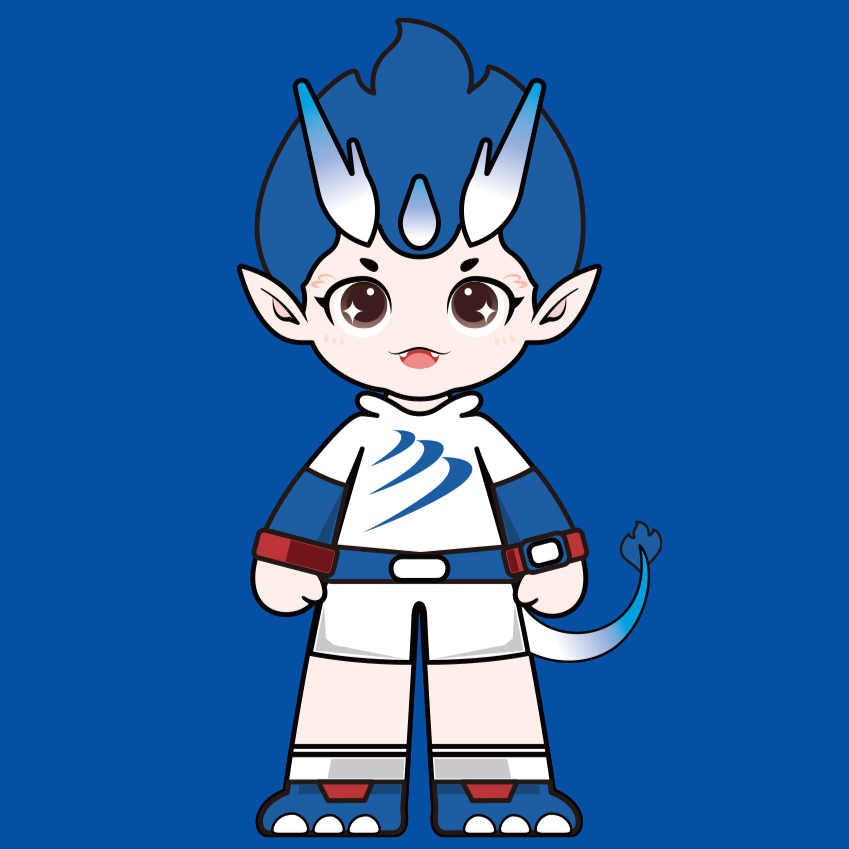
иӢұиҜӯиҜӯжі•и®Іи§ЈдёҖиҲ¬иҝҮеҺ»ж—¶
2024-01-09 В· зҷҫеәҰи®ӨиҜҒ:дә‘еҚ—ж–°еҚҺз”өи„‘иҒҢдёҡеҹ№и®ӯеӯҰж Ўе®ҳж–№иҙҰеҸ·
 дә‘еҚ—ж–°еҚҺз”өи„‘еӯҰж Ў
дә‘еҚ—ж–°еҚҺз”өи„‘еӯҰж Ў

дёҖиҲ¬иҝҮеҺ»ж—¶з”ЁжқҘиЎЁзӨәиҝҮеҺ»жҹҗдёҖж—¶й—ҙеҶ…еҸ‘з”ҹзҡ„еҠЁдҪңжҲ–еӯҳеңЁзҡ„зҠ¶жҖҒд»ҘеҸҠиҝҮеҺ»д№ жғҜжҖ§гҖҒеҸҚеӨҚжҖ§зҡ„еҠЁдҪңгҖӮи°“иҜӯеҠЁиҜҚиҰҒз”ЁеҠЁиҜҚзҡ„иҝҮеҺ»ејҸпјҢеёёе’ҢиЎЁзӨәиҝҮеҺ»зҡ„ж—¶й—ҙзҠ¶иҜӯиҝһз”ЁпјҢеҰӮyesterdayжҳЁеӨ©гҖҒlast nightжҳЁжҷҡгҖҒlast weekдёҠе‘ЁгҖҒlast yearеҺ»е№ҙпјҢзӯүгҖӮ
дәҢгҖҒдёҖиҲ¬иҝҮеҺ»ж—¶зҡ„з»“жһ„пјҡпјҲеҸҜеҲҶ4зұ»дёҚеҗҢзҡ„з»“жһ„пјү
1.BeеҠЁиҜҚзҡ„дёҖиҲ¬иҝҮеҺ»ж—¶
пјҲ1пјүеңЁжІЎжңүе®һд№үеҠЁиҜҚзҡ„еҸҘеӯҗдёӯдҪҝз”ЁbeеҠЁиҜҚпјҢ am is зҡ„иҝҮеҺ»ејҸдёәwas; areзҡ„иҝҮеҺ»ејҸдёәwere
пјҲ2пјүиӮҜе®ҡеҸҘејҸпјҡдё»иҜӯ + be(was , were) + е…¶е®ғ.
I was very shy two years ago.
пјҲ3пјүеҗҰе®ҡеҸҘејҸпјҡдё»иҜӯ + be(was , were) + not + е…¶е®ғ.
I was not very shy two years ago.
пјҲ4пјүдёҖиҲ¬з–‘й—®еҸҘпјҡBe(was , were) + дё»иҜӯ + е…¶е®ғпјҹ
Were you very shy two years ago?
жіЁпјҡеңЁиҝҷз§Қжһ„жҲҗдёӯпјҢbeеҠЁиҜҚжңүдәәз§°е’Ңж•°зҡ„еҸҳеҢ–пјҢеҚіиҰҒж №жҚ®дё»иҜӯйҖүз”Ёwas / wereгҖӮBeеҠЁиҜҚеҲҶдёәеҚ•ж•°е’ҢеӨҚж•°пјҢwasжҳҜиЎЁзӨәеҚ•ж•°пјҢwereжҳҜиЎЁзӨәеӨҚж•°гҖӮ
2. е®һд№үеҠЁиҜҚзҡ„дёҖиҲ¬иҝҮеҺ»ж—¶жҖҒ
иӮҜе®ҡеҸҘиҰҒдҪҝз”ЁеҠЁиҜҚзҡ„иҝҮеҺ»ејҸпјҢеҗҰе®ҡеҸҘе’Ңз–‘й—®еҸҘиҰҒдҪҝз”ЁеҠ©еҠЁиҜҚdoе’Ң does зҡ„иҝҮеҺ»ејҸ did.
иӮҜе®ҡеҸҘејҸпјҡдё»иҜӯ + еҠЁиҜҚпјҲиҝҮеҺ»ејҸпјү+ е…¶е®ғ
I ate breakfast 2 hours ago.
еҗҰе®ҡеҸҘејҸпјҡдё»иҜӯ + didnвҖҷt + еҠЁиҜҚпјҲеҺҹеҪўпјү+ е…¶е®ғ гҖҗdid not = didnвҖҷtгҖ‘
I did not eat breakfast 2 hours ago.
дёҖиҲ¬з–‘й—®еҸҘпјҡDid + дё»иҜӯ+ еҠЁиҜҚпјҲеҺҹеҪўпјү+ е…¶е®ғгҖҗdo , doesзҡ„иҝҮеҺ»ж—¶еқҮдёәdidгҖ‘пјҹ
Did you eat breakfast 2 hours ago?
жіЁпјҡdidе’ҢdidnвҖҷt жҳҜжһ„жҲҗдёҖиҲ¬иҝҮеҺ»ж—¶зҡ„еҠ©еҠЁиҜҚпјҢе…¶зү№зӮ№жҳҜиҰҒеңЁе…¶еҗҺи·ҹеҠЁиҜҚзҡ„еҺҹеҪўгҖӮ
3. жғ…жҖҒеҠЁиҜҚзҡ„дёҖиҲ¬иҝҮеҺ»ж—¶жҖҒ
еҗ«жңүжғ…жҖҒеҠЁиҜҚзҡ„дёҖиҲ¬иҝҮеҺ»ж—¶дёҺеҗ«жңүBeеҠЁиҜҚзҡ„дёҖиҲ¬иҝҮеҺ»ж—¶пјҢжҳҜеҚҒеҲҶзӣёдјјпјҢиҜ·жіЁж„Ҹи§ӮеҜҹгҖӮ
иӮҜе®ҡеҸҘејҸпјҡдё»иҜӯ + жғ…жҖҒеҠЁиҜҚ + е…¶е®ғ.
She could sing well when she was young.
еҗҰе®ҡеҸҘејҸпјҡдё»иҜӯ + жғ…жҖҒеҠЁиҜҚ + not + е…¶е®ғ.
She could not sing well when she was young.
дёҖиҲ¬з–‘й—®еҸҘпјҡжғ…жҖҒеҠЁиҜҚ + дё»иҜӯ + е…¶е®ғпјҹ
Could she sing well when she was young?
жіЁпјҡжғ…жҖҒеҠЁиҜҚзҡ„иҝҮеҺ»ејҸпјҡcanвҶ’could , mayвҶ’might , mustвҶ’must пјҢwill-wouldпјҢshould-should.
4.зү№ж®Ҡз–‘й—®еҸҘејҸпјҡ
зү№ж®Ҡз–‘й—®иҜҚ+beиҝҮеҺ»ејҸ+дё»иҜӯ+е…¶д»–пјҹ
зү№ж®Ҡз–‘й—®иҜҚ+жғ…жҖҒеҠ©еҠЁиҜҚиҝҮеҺ»ејҸ+дё»иҜӯ+еҠЁиҜҚеҺҹеҪў+е…¶д»–пјҹ
зү№ж®Ҡз–‘й—®иҜҚ+do/doesиҝҮеҺ»ејҸ+дё»иҜӯ+еҠЁиҜҚеҺҹеҪў+е…¶д»–пјҹ
What was your former nameпјҹ дҪ д»ҘеүҚеҸ«д»Җд№ҲеҗҚеӯ—пјҹ
Why was he late for school last Mondayпјҹ дёҠжҳҹжңҹдёҖд»–дёәд»Җд№ҲиҝҹеҲ°пјҹ
What could she do twenty years agoпјҹ 20е№ҙеүҚеҘ№иғҪеҒҡд»Җд№Ҳпјҹ
дёүгҖҒ дёҖиҲ¬иҝҮеҺ»ж—¶зҡ„еҲӨж–ӯж Үеҝ—иҜҚ
yesterday , the day before yesterday , last + ж—¶й—ҙ , this morning
ж—¶й—ҙ + ago , just now , a moment ago , in + иҝҮеҺ»зҡ„ж—¶й—ҙ .
еӣӣгҖҒ规еҲҷеҠЁиҜҚзҡ„иҝҮеҺ»ејҸ
1.дёҖиҲ¬жғ…еҶөдёӢпјҢеңЁеҠЁиҜҚеҺҹеҪўеҗҺйқўеҠ -edгҖӮ
lookвҶ’looked playвҶ’played startвҶ’started visitвҶ’visited
2.д»ҘдёҚеҸ‘йҹіeз»“е°ҫзҡ„еҠЁиҜҚпјҢеңЁиҜҚе°ҫзӣҙжҺҘеҠ -dгҖӮ
liveвҶ’lived useвҶ’used
3.д»ҘвҖңиҫ…йҹіеӯ—жҜҚ+ yвҖқз»“е°ҫзҡ„еҠЁиҜҚпјҢе…Ҳе°Ҷ y ж”№дёәi ,еҶҚеҠ вҖ“edгҖӮ
studyвҶ’studied tryвҶ’tried flyвҶ’flied
4.д»ҘйҮҚиҜ»й—ӯйҹіиҠӮпјҲеҚіиҫ…йҹіпјӢе…ғйҹіпјӢиҫ…йҹіпјүжҲ–rйҹіиҠӮз»“е°ҫпјҢжң«е°ҫеҸӘжңүдёҖдёӘиҫ…йҹіеӯ—жҜҚзҡ„еҠЁиҜҚпјҢиҰҒе…ҲеҸҢеҶҷиҝҷдёӘиҫ…йҹіеӯ—жҜҚеҗҺпјҢеҶҚеҠ вҖ“edгҖӮ
stopвҶ’stoppedгҖҖгҖҖplanвҶ’planned preferвҶ’preferred
5.дёҚ规еҲҷеҠЁиҜҚзҡ„иҝҮеҺ»ејҸйңҖзү№ж®Ҡи®°еҝҶгҖӮ
дә”гҖҒ дёҖиҲ¬иҝҮеҺ»ж—¶зҡ„еҹәжң¬з”Ёжі•
1.иЎЁзӨәиҝҮеҺ»жҹҗдёӘзү№е®ҡж—¶й—ҙеҸ‘з”ҹзҡ„еҠЁдҪңжҲ–еӯҳеңЁзҡ„зҠ¶жҖҒгҖӮ
He suddenly fell ill last night.
д»–жҳЁжҷҡзӘҒ然病еҖ’дәҶгҖӮ
2.иЎЁзӨәиҝҮеҺ»зҡ„д№ жғҜжҖ§жҲ–з»ҸеёёеҸ‘з”ҹзҡ„еҠЁдҪңгҖӮеёёе’Ңoftenз»ҸеёёпјҢalwaysжҖ»жҳҜпјҢonce a weekдёҖе‘ЁдёҖж¬ЎпјҢзӯүиЎЁзӨәйў‘еәҰзҡ„ж—¶й—ҙзҠ¶иҜӯиҝһз”ЁгҖӮ
She went to the cinema once a month when she was at school.
еҘ№дёҠеӯҰж—¶жҜҸдёӘжңҲеҺ»зңӢдёҖеңәз”өеҪұгҖӮ
When I was in the countryside, I often walked by the riverside.
жҲ‘еңЁд№ЎдёӢж—¶з»ҸеёёеңЁжІіиҫ№ж•ЈжӯҘгҖӮ
2022-06-25 В· TAиҺ·еҫ—и¶…иҝҮ5184дёӘиөһ

гҖҖгҖҖдёҖиҲ¬иҝҮеҺ»ж—¶жҳҜиӢұиҜӯиҜӯжі•дёӯзҡ„дёҖдёӘж—¶жҖҒеҲҶзұ»пјҢзҺ°еңЁжҲ‘们жҠҠе®ғз»ҶеҢ–жқҘиҜҙгҖӮдёӢйқўжҳҜжҲ‘з»ҷеӨ§е®¶ж•ҙзҗҶзҡ„иӢұиҜӯиҜӯжі•и®Іи§ЈдёҖиҲ¬иҝҮеҺ»ж—¶пјҢдҫӣеӨ§е®¶еҸӮйҳ…!
гҖҖгҖҖиӢұиҜӯиҜӯжі•и®Іи§ЈпјҡдёҖиҲ¬иҝҮеҺ»ж—¶иЎЁзӨәзҺ°еңЁ
гҖҖгҖҖеңЁе®ҫиҜӯд»ҺеҸҘдёӯпјҢз”ұдәҺж—¶жҖҒе‘јеә”зҡ„е…ізі»пјҢдёҖиҲ¬иҝҮеҺ»ж—¶еҸҜд»ҘиЎЁзӨәзҺ°еңЁгҖӮеҰӮпјҡ
гҖҖгҖҖI didn't know you were here. жҲ‘дёҚзҹҘйҒ“дҪ еңЁиҝҷе„ҝгҖӮ(wereе®һйҷ…дёҠжҢҮзҺ°еңЁ)
гҖҖгҖҖI didn't know you were so busy.жҲ‘жІЎжғіеҲ°дҪ иҝҷд№ҲеҝҷгҖӮ(wereе®һйҷ…дёҠжҢҮзҺ°еңЁ)
гҖҖгҖҖеҸҰеӨ–пјҢеңЁжҹҗдәӣзү№ж®ҠеҸҘејҸдёӯпјҢдёҖиҲ¬иҝҮеҺ»ж—¶д№ҹеҸҜд»ҘиЎЁзӨәзҺ°еңЁгҖӮеҰӮ
гҖҖгҖҖIt's time we started. жҲ‘们иҜҘеҠЁиә«дәҶгҖӮ
гҖҖгҖҖI wish I knew his name. иҰҒжҳҜжҲ‘зҹҘйҒ“д»–зҡ„еҗҚеӯ—е°ұеҘҪдәҶгҖӮ
гҖҖгҖҖI'd rather you lived closer to us. жҲ‘еёҢжңӣдҪ иғҪдҪҸеҫ—зҰ»жҲ‘们иҝ‘зӮ№гҖӮ
гҖҖгҖҖиӢұиҜӯиҜӯжі•и®Іи§Јпјҡз”ЁдёҖиҲ¬иҝҮеҺ»ж—¶д»Јжӣҝе®ҢжҲҗж—¶
гҖҖгҖҖ1) жһ„жҲҗwill / be going to do sth.
гҖҖгҖҖ2) жҰӮеҝө
гҖҖгҖҖa. зҠ¶жҖҒе®ҢжҲҗпјҡиЎЁзӨәжҹҗдәӢ继з»ӯеҲ°е°ҶжқҘжҹҗдёҖж—¶дёәжӯўдёҖзӣҙжңүзҡ„зҠ¶жҖҒгҖӮ
гҖҖгҖҖb. еҠЁдҪңе®ҢжҲҗпјҡиЎЁзӨәе°ҶжқҘжҹҗдёҖж—¶жҲ–еҸҰдёҖдёӘе°ҶжқҘзҡ„еҠЁдҪңд№ӢеүҚпјҢе·Із»Ҹе®ҢжҲҗзҡ„еҠЁдҪңжҲ–дёҖиҺ·еҫ—зҡ„з»ҸйӘҢгҖӮ
гҖҖгҖҖThey will have been married for 20 years by then.
гҖҖгҖҖYou will have reached Shanghai by this time tomorrow.
гҖҖгҖҖиӢұиҜӯиҜӯжі•и®Іи§ЈпјҡдёҖиҲ¬иҝҮеҺ»ж—¶зҡ„з”Ёжі•
гҖҖгҖҖ1)еңЁзЎ®е®ҡзҡ„иҝҮеҺ»ж—¶й—ҙйҮҢжүҖеҸ‘з”ҹзҡ„еҠЁдҪңжҲ–еӯҳеңЁзҡ„зҠ¶жҖҒгҖӮ
гҖҖгҖҖж—¶й—ҙзҠ¶иҜӯжңүпјҡyesterday, last week, an hour ago, the other day, in 1982зӯүгҖӮ
гҖҖгҖҖWhere did you go just now?
гҖҖгҖҖ2)иЎЁзӨәеңЁиҝҮеҺ»дёҖж®өж—¶й—ҙеҶ…пјҢз»ҸеёёжҖ§жҲ–д№ жғҜжҖ§зҡ„еҠЁдҪңгҖӮ
гҖҖгҖҖWhen I was a child, I often played football in the street.
гҖҖгҖҖWhenever the Browns went during their visit, they were given a warm welcome.
гҖҖгҖҖ3)еҸҘеһӢпјҡ
гҖҖгҖҖIt is time for sb. to do sthгҖҖ "еҲ°……ж—¶й—ҙдәҶ"гҖҖ "иҜҘ……дәҶ"
гҖҖгҖҖIt is time sb. did sth. "ж—¶й—ҙе·ІиҝҹдәҶ"гҖҖ "ж—©иҜҘ……дәҶ"
гҖҖгҖҖIt is time for you to go to bed.гҖҖ дҪ иҜҘзқЎи§үдәҶгҖӮ
гҖҖгҖҖIt is time you went to bed.гҖҖгҖҖгҖҖдҪ ж—©иҜҘзқЎи§үдәҶгҖӮ
гҖҖгҖҖwould (had) rather sb. did sth.гҖҖиЎЁзӨә'е®Ғж„ҝжҹҗдәәеҒҡжҹҗдәӢ'
гҖҖгҖҖI'd rather you came tomorrow.
гҖҖгҖҖ4) wish, wonder, think, hope зӯүз”ЁиҝҮеҺ»ж—¶пјҢдҪңиҜ•жҺўжҖ§зҡ„иҜўй—®гҖҒиҜ·жұӮгҖҒе»әи®®зӯүгҖӮ
гҖҖгҖҖI thought you might have some. жҲ‘д»ҘдёәдҪ жғіиҰҒдёҖдәӣгҖӮ
гҖҖгҖҖжҜ”иҫғпјҡ
гҖҖгҖҖдёҖиҲ¬иҝҮеҺ»ж—¶иЎЁзӨәзҡ„еҠЁдҪңжҲ–зҠ¶жҖҒйғҪе·ІжҲҗдёәиҝҮеҺ»пјҢзҺ°е·ІдёҚеӨҚеӯҳеңЁгҖӮ
гҖҖгҖҖChristine was an invalid all her life.
гҖҖгҖҖ(еҗ«д№үпјҡеҘ№е·ІдёҚеңЁдәәй—ҙгҖӮ)
гҖҖгҖҖChristine has been an invalid all her life.
гҖҖгҖҖ(еҗ«д№үпјҡеҘ№зҺ°еңЁиҝҳжҙ»зқҖ)
гҖҖгҖҖMrs. Darby lived in Kentucky for seven years.
гҖҖгҖҖ(еҗ«д№үпјҡиҫҫжҜ”еӨӘеӨӘе·ІдёҚеҶҚдҪҸеңЁиӮҜеЎ”еҹәе·һгҖӮ)
гҖҖгҖҖMrs. Darby has lived in Kentucky for seven years.
гҖҖгҖҖ( еҗ«д№үпјҡзҺ°еңЁиҝҳдҪҸеңЁиӮҜеЎ”еҹәе·һпјҢжңүеҸҜиғҪжҢҮеҲҡзҰ»еҺ»)
гҖҖгҖҖжіЁж„Ҹпјҡ з”ЁиҝҮеҺ»ж—¶иЎЁзӨәзҺ°еңЁпјҢиЎЁзӨә委е©үиҜӯж°”гҖӮ
гҖҖгҖҖ1)еҠЁиҜҚwant, hope, wonder, think, intend зӯүгҖӮ
гҖҖгҖҖDid you want anything else?
гҖҖгҖҖI wondered if you could help me.
гҖҖгҖҖ2)жғ…жҖҒеҠЁиҜҚ could, would.
гҖҖгҖҖCould you lend me your bike?
гҖҖгҖҖиӢұиҜӯиҜӯжі•и®Іи§ЈпјҡдёҖиҲ¬иҝҮеҺ»ж—¶зҡ„з»“жһ„
гҖҖгҖҖдёҖгҖҒжһ„жҲҗж–№жі•
гҖҖгҖҖдёҖиҲ¬иҝҮеҺ»ж—¶з”ЁеҠЁиҜҚзҡ„иҝҮеҺ»ејҸжһ„жҲҗпјҢеҚіеңЁеҠЁиҜҚеҺҹеҪўеҗҺеҠ edгҖӮ
гҖҖгҖҖдәҢгҖҒз”Ёжі•иҜҙжҳҺ
гҖҖгҖҖ1гҖҒиЎЁзӨәеңЁиҝҮеҺ»жҹҗдёӘж—¶й—ҙжүҖеҸ‘з”ҹзҡ„еҠЁдҪңжҲ–жүҖеӨ„зҡ„зҠ¶жҖҒгҖӮеёёдёҺyesterday, last week, in 1989, just now, a moment ago, the other dayзӯүиҝһз”ЁгҖӮеҰӮпјҡ
гҖҖгҖҖHe was here just now. д»–еҲҡжүҚиҝҳеңЁиҝҷйҮҢгҖӮ
гҖҖгҖҖWhat did you do yesterday? дҪ жҳЁеӨ©еҒҡдәҶд»Җд№ҲдәӢ?
гҖҖгҖҖ2гҖҒеңЁиҝҮеҺ»дёҖж®өж—¶й—ҙеҶ…зҡ„з»ҸеёёжҖ§жҲ–д№ жғҜжҖ§еҠЁдҪңгҖӮеҰӮпјҡ
гҖҖгҖҖWe often played together when we were children. жҲ‘们е°Ҹж—¶еҖҷеёёеңЁдёҖиө·зҺ©гҖӮ
гҖҖгҖҖжіЁпјҡиЎЁзӨәиҝҮеҺ»з»ҸеёёеҸ‘з”ҹзҡ„еҠЁдҪңиҝҳеҸҜз”Ёused to е’ҢwouldгҖӮеҰӮпјҡ
гҖҖгҖҖHe used to smoke a lot, but he doesn't now. д»–иҝҮеҺ»з»ҸеёёжҠҪзғҹпјҢдҪҶзҺ°еңЁдёҚжҠҪдәҶгҖӮ
гҖҖгҖҖWhenever we were in trouble, he would help us. жҜҸеҪ“жҲ‘们йҒҮеҲ°еӣ°йҡҫпјҢд»–йғҪдјҡеё®еҠ©жҲ‘们гҖӮ
гҖҖгҖҖ3гҖҒиЎЁзӨәдё»иҜӯиҝҮеҺ»зҡ„зү№еҫҒжҲ–жҖ§ж јгҖӮеҰӮпјҡ
гҖҖгҖҖAt that time she was very good at English. йӮЈж—¶еҘ№иӢұиҜӯеӯҰеҫ—еҫҲеҘҪгҖӮ
гҖҖгҖҖ4гҖҒз”ЁеңЁзҠ¶иҜӯд»ҺеҸҘдёӯиЎЁзӨәиҝҮеҺ»е°ҶжқҘгҖӮеҰӮпјҡ
гҖҖгҖҖHe said he would wait until they came back.
гҖҖгҖҖ5гҖҒдёҖиҲ¬иҝҮеҺ»ж—¶жңүж—¶еҸҜд»ҘиЎЁзӨәзҺ°еңЁпјҢеӨҡдёҺ want, hope, wonder, think, intend зӯүеҠЁиҜҚиҝһз”ЁпјҢдҪҝиҜӯж°”жӣҙ委е©үгҖӮеҰӮпјҡ
гҖҖгҖҖI wondered if you could help me. дёҚзҹҘдҪ иғҪдёҚиғҪеё®жҲ‘дёҖдёӢгҖӮ
гҖҖгҖҖ6гҖҒжңүж—¶з”ЁдёҖиҲ¬иҝҮеҺ»ж—¶д№ҹжҳҜж—¶жҖҒдёҖиҮҙзҡ„йңҖиҰҒгҖӮеҰӮпјҡ
гҖҖгҖҖI didn't know you were here. жІЎжғіеҲ°дҪ еңЁиҝҷйҮҢгҖӮ
гҖҖгҖҖжіЁж„Ҹпјҡ
гҖҖгҖҖ1. иЎЁзӨәдёҖзі»еҲ—зҡ„еҠЁдҪңпјҢе°Ҫз®Ўжңүе…ҲеҗҺпјҢйғҪз”ЁдёҖиҲ¬иҝҮеҺ»ж—¶пјҢжңҖеҗҺдёӨдёӘеҠЁиҜҚд№Ӣй—ҙз”Ёandиҝһз»“гҖӮеҰӮпјҡ
гҖҖгҖҖHe opened the door, rushed out and then disappeared. д»–жү“ејҖй—ЁпјҢеҶІдәҶеҮәеҺ»пјҢ然еҗҺе°ұж¶ҲеӨұдәҶгҖӮ
гҖҖгҖҖ2. жіЁж„ҸеңЁиҜӯеўғдёӯзҗҶи§Ј“жҲ‘еҲҡжүҚ/еҺҹжқҘиҝҳдёҚ……”гҖӮеҰӮпјҡ
гҖҖгҖҖ—Your phone number again? I didn't quite catch it. —It's 2566666. иҜ·еҶҚиҜҙдёҖж¬ЎдҪ зҡ„з”өиҜқеҸ·з ҒпјҢеҘҪеҗ—?жҲ‘еҲҡжүҚжІЎеҗ¬жё…жҘҡгҖӮжҳҜ2566666гҖӮ
гҖҖгҖҖ

